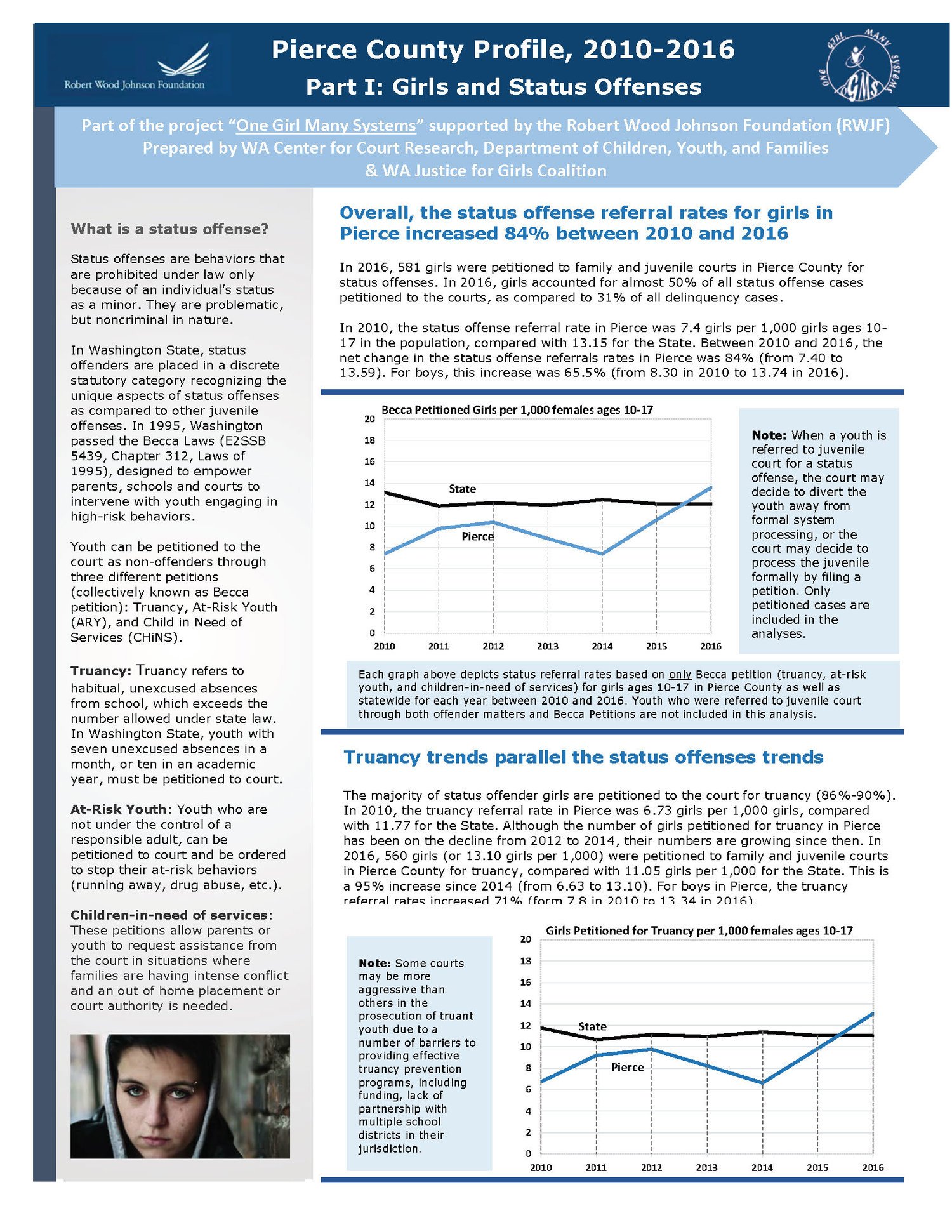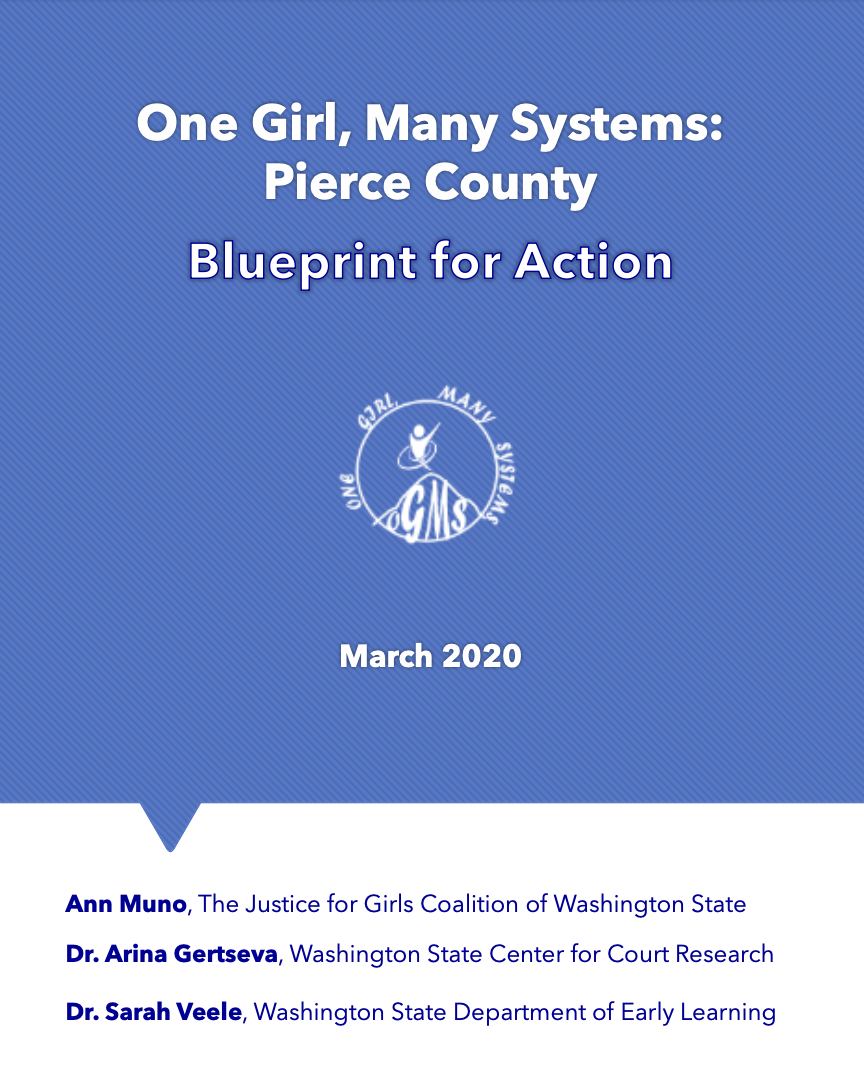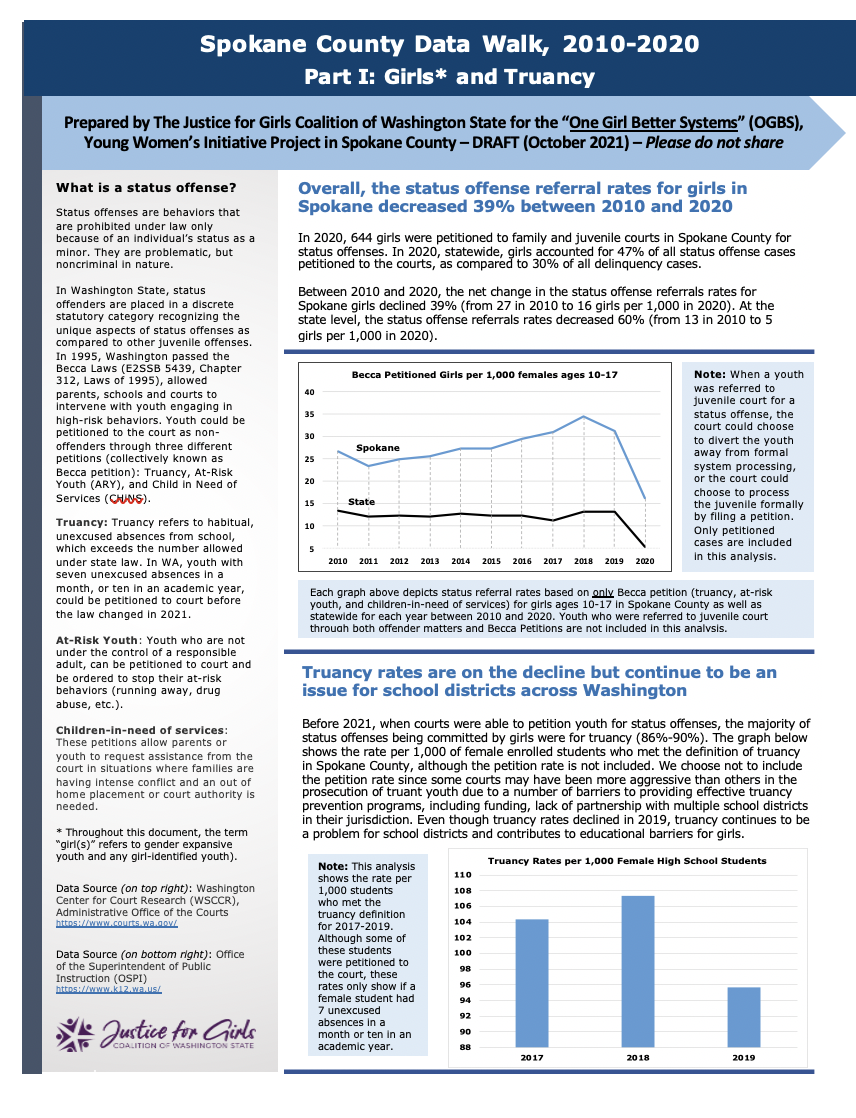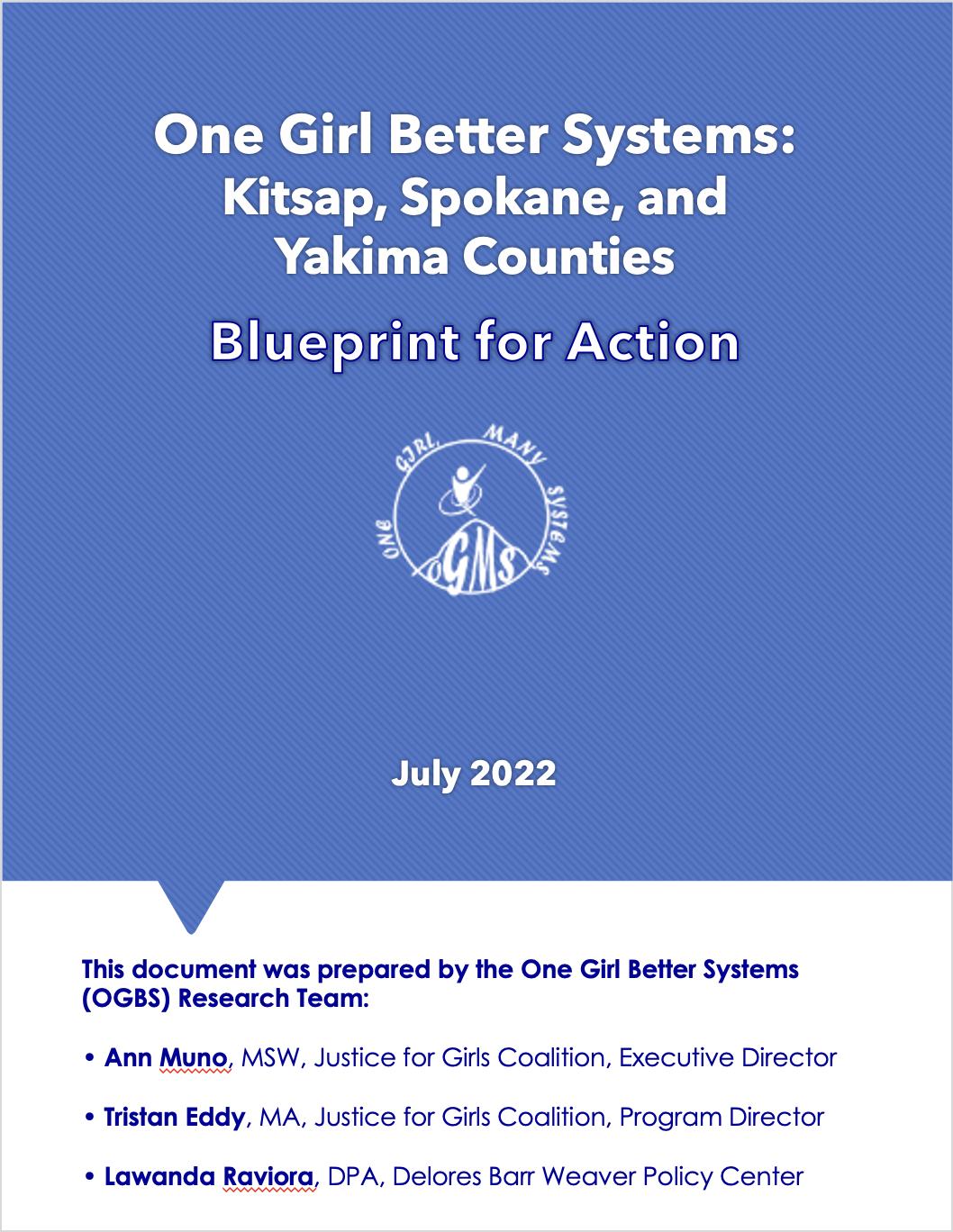One Girl Better Systems (OGBS) Program
Why?
The project goal is to center the voice of girls as we support community stakeholders to develop solutions that prevent girls with status offenses from falling deeper into the juvenile justice system. Our project informs community led interventions and resource development to reduce the rate of unnecessary confinement and support girls’ ongoing success. We currently center our One Girl Better Systems work in Pierce, Yakima, Spokane and Kitsap counties.
Who?
Justice for Girls staff join county stakeholder teams, comprised of community members from youth development, health and mental health, housing, government, researchers, schools and court workers, who unite in a common goal: to shape and implement solutions that support the success of girls who are truant from school, running away or otherwise at risk of court court. As a catalyst, convener and collaborator, we use a race-equity approach and lens in our community organizing and participatory research. Need more information? Contact Ann Muno: amuno@jfgcoalition.org or 206.769.7837.
How?
Each county-level team uses the Community Framework for System Change Framework, which was successfully developed by the Delores Barr Weaver Policy Center in Florida. During the 18-month process, we:
Conduct secondary data analysis
Form Advisory Steering Committee
Host Listening Sessions
Convene a Task Force
Host “Raise Awareness” Event
Conduct Community Needs Assessment
Review Policy & Practices
Prioritize Needs with Community
Create a Strategic Plan
What do we mean when we say we use a race equity approach**?
Consider Impact: We consider racial differences in who experiences the benefits and burdens of a program, policy or practice. We work to provide equity data so decisions can be made based on the current landscape of who is experiencing the benefits and burdens.
Work toward a Shared Definition of Equity: We do not assume we are all on the same page in understanding the definition of equity, and work to establish a common understanding of equity.
Challenge Power Imbalances in the Change Process: We talk explicitly about race and implicit bias among stakeholders, practice cultural humility as a core value in the process and consider how stakeholder opportunities are created.
Community Engagement: A race equity approach means we ask: how have communities been engaged? Are there opportunities to expand engagement? We do not consult data or literature alone to assume how a program, policy or practice might impact a community. Involving communities impacted by a topic, engaging community throughout all phases of a project, and maintaining clear and transparent communication as the policy or program is implemented will help produce more racially equitable results.
**Source: We base our Race Equity Approach off of the work at Government Alliance on Race and Equity (GARE) is a national network of government working to achieve racial equity and advance opportunities for all. Find info on the GARE Race-Equity Toolkit here.
Pierce County Data Walk
Pierce Blueprint for Action
Kitsap County Data Walk
Spokane County Data Walk
Yakima County Data Walk
Kitsap, Spokane, and Yakima Blueprint for Action






